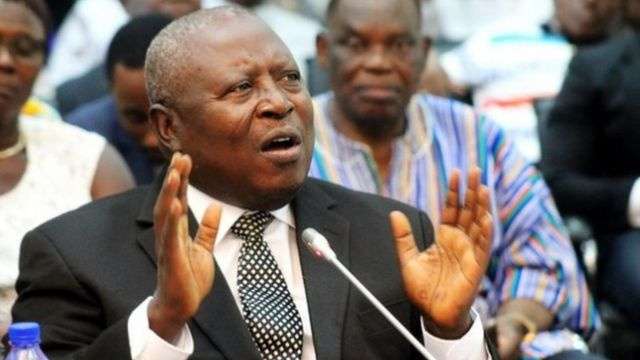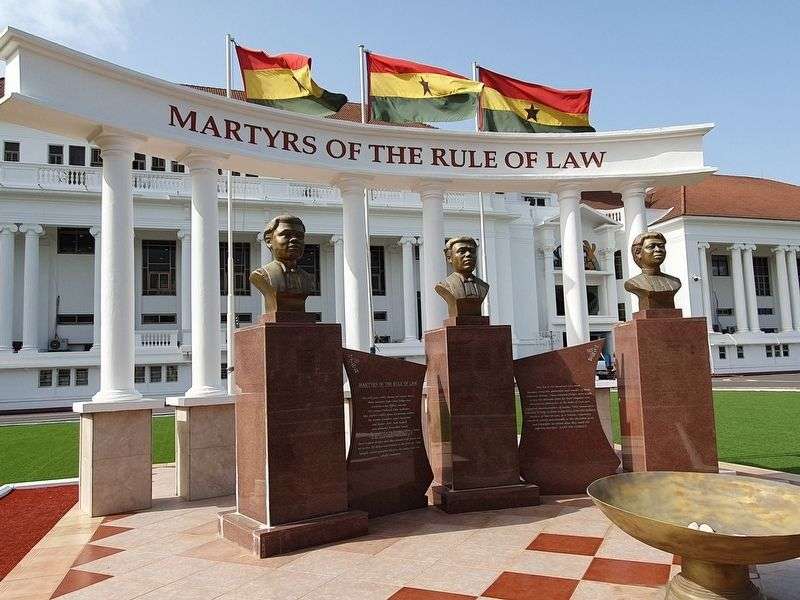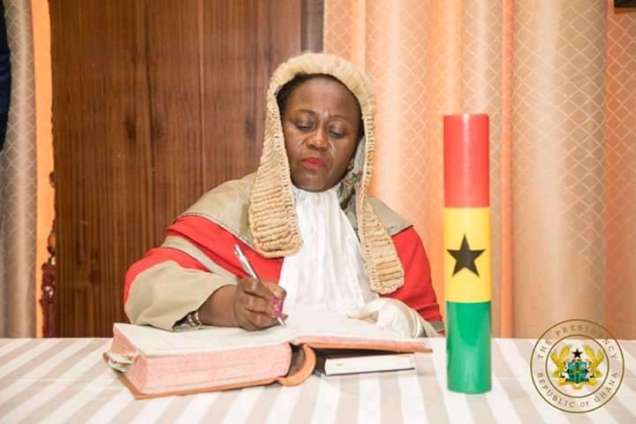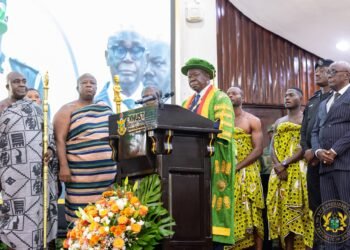The ongoing controversy surrounding Ghana’s Chief Justice has taken a dramatic new turn, as former Special Prosecutor Martin Amidu leveled a searing critique of her conduct and legal maneuvers following the submission of petitions seeking her removal from office.
The Chief Justice, Gertrude Torkornoo, according to Amidu, has cast aside the dignity of her position and resorted to tactics that he characterized as “childlike, ingratiating, begging and appealing to the emotions” in a supplementary affidavit filed in court.
Amidu’s statement challenged the legal and ethical basis of the Chief Justice’s recent actions, particularly after her application for an interim injunction and accompanying writ, filed on May 21, 2025.
This application, Amidu asserted, was part of a calculated media strategy to elicit public sympathy, rather than a principled legal argument grounded in constitutional law.
“The Supreme Court has decided that proceedings initiated by removal petitions of Superior Court Justices under Article 146 of the 1992 Constitution must be heard in camera, and that is the Constitution and law of Ghana until the same Court decides in the future to depart from its own previous decisions.”
Martin Amidu
He reminded the public that three earlier applications for injunctions under the same Article had already been dismissed by the Supreme Court for lacking merit, including one as recent as May 6, 2025, in the case of Vincent Assafuah v Attorney-General.

Despite these rulings, the Chief Justice filed her own suit on May 21, seeking a public hearing and the suspension of her removal process.
That suit was filed just hours after the Supreme Court dismissed two other interim applications.
The move, according to Amidu, gave the impression of a choreographed response rather than a principled stand.
The writ was filed with an accompanying application for an interim injunction, both of which were circulated in the media before even being fully constituted with affidavits.
Legal Drama Grips Judicial Leadership
Martin Amidu further stated that the supplementary affidavit filed by the Chief Justice on May 26 contains “scandalous and vexatious materials” that, in his view, are not grounded in factual evidence.
This affidavit, he argued, not only disregarded ethical and procedural norms but also sought to mislead both the court and the public.
He accused the Chief Justice of improperly disclosing proceedings that occurred behind closed doors, which, under Article 146(8), are constitutionally protected from public dissemination.

He cited paragraphs 6 through 11 of the affidavit, which described alleged events from the closed proceedings, as evidence of the Chief Justice’s breach of confidentiality.
These disclosures, he insisted, were made knowingly and for the purpose of influencing public opinion. Amidu labeled this tactic a “fit of childlike indiscretion.”
The critique didn’t stop there. Amidu targeted paragraph 12 of the affidavit, which referenced the exclusion of the Chief Justice’s husband and children from the in-camera hearing.
He explained that such exclusions are standard practice to maintain confidentiality, and accused the Chief Justice of omitting relevant facts—such as whether petitioners and their legal teams were also subjected to searches upon entry—to frame a one-sided emotional narrative.
In paragraph 13, Amidu noted that the Chief Justice conveniently left out that the previous Article 146 proceedings she referred to were all conducted in venues she herself designated.
This time, the responsibility for constituting the committee lies with the President, who must also provide the hearing venue. This shift, he said, has constitutional backing and does not justify the complaints made in her affidavit.
Even more scathing was Amidu’s response to paragraphs 14 and 15, which he described as “childlike, ingratiating cries” devoid of supporting facts.
He strongly criticized the Chief Justice for stating under oath that the proceedings against her are “a mockery of justice and a ruse to unjustifiably remove [her] from office.”
According to Amidu, such statements mimic “political party playbook hymns” and represent a gross overstep by someone occupying the highest judicial office.
Political Bias Claims In Chief Justice Case Rejected
Amidu also emphasized that no credible evidence has been presented to suggest that the petitions against the Chief Justice were politically motivated.
He expressed his willingness to support her if such evidence ever surfaces, but until then, he argued that every patriot must uphold the Constitution regardless of who is under scrutiny.
“Hopefully, the Court will rise above such childlike begging, appeals, and ingratiating conduct,” he concluded, urging the judiciary to strike out paragraphs 6 to 15 of the supplementary affidavit as “frivolous, vexatious, scandalous, and an abuse of the process.”

He reaffirmed his belief that the Constitution prohibits the misuse of power for political ends and called on all citizens to resist such abuses, especially when they are backed by concrete evidence.
Amidu warned against the growing trend of political conjecture from both parliamentary minorities and supporters of the Chief Justice, noting that none of it has yet been substantiated with facts.
“Until then,” he stated, “all patriots have a duty to uphold the Constitution no matter whose ass is gored.”
READ ALSO: GuiltyBeatz on Humble Beginnings in Music Production























